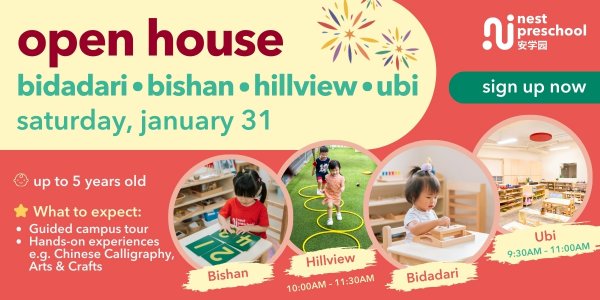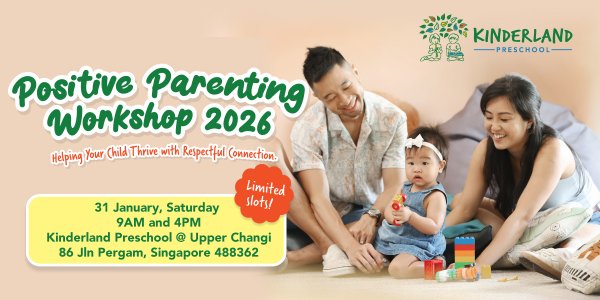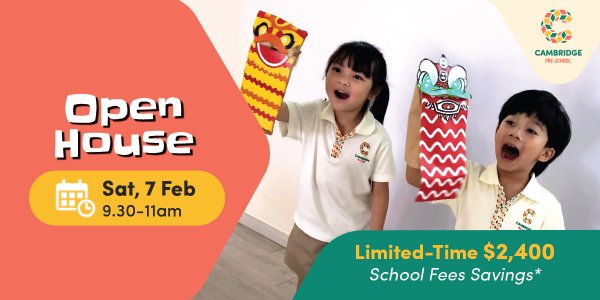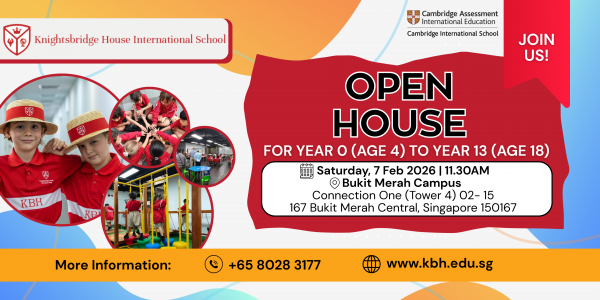Take The Preschool Quiz to Find the Best School for Your Child
The Preschool Quiz
Try typing ‘good preschools’ into Google; the flood of listings, advertisements, and articles is enough to give anyone a headache.
How then do you get started picking one out of the sea of options, without being influenced by the one with the biggest banner or prettiest picture? Though practical matters such as the school’s location, its fees, and the length of the school day may help narrow down the list, sometimes you just want to pick the school that best fits your child’s unique characteristics no matter what.
To help you find just that, we give you a short but probing Preschool Quiz to help you structure the perfect preschool for you and your baby. After that, all you need to do is find a match!
‘Children who attend high-quality preschools are better prepared for school and are more likely to achieve their potential in their future progress, not least because the preschool experience equips them with the social, emotional, cognitive and overall competency skills that will contribute to their readiness for school.’ Vital Voices for Vital Years, Lien Foundation
Q1: What kind of educational philosophy do you subscribe to?
Would you prefer your child learn through play in an interactive, relaxed environment, or partake in a more structured curriculum? Do you think your child should decide on his own work schedule for the day, or should a teacher guide him through this?
These are some of the questions you should ask yourself to determine the type of educational philosophy you want your child to learn under. Here are some of the different approaches that are commonly adopted by education centres in Singapore:
Fun-based: The Waldorf Approach
Waldorf schools embody a philosophy that emphasises the importance of creative play and imagination, as well as sensory experiences in learning. They focus on providing children opportunities to engage in practical activities and explore their world, allowing them to learn through example and participation, rather than through taking instructions. Storytelling, play-acting, as well as craft and music lessons often feature in the Waldorf curriculum.
If this sounds right for you, consider enrolling your child in the Waldorf Steiner Education Association Singapore’s Waldorf Early Childhood Program for children aged 2.5 – 6 years, taught by a Waldorf specialist.
Child-Led: The Montessori Method
The core philosophy behind the Montessori Method is freedom and individuality – each child’s uniqueness is respected, and students are given the autonomy to self-direct their learning process. Based on the theory that all children have a natural desire to acquire knowledge, Montessori class-rooms often have children of various ages learning together, moving about freely and choosing to participate in activities which they are interested in.
There are over 50 schools subscribing to this method in Singapore, most of which, helpfully, have ‘Montessori’ in their names. Some examples include Brighton Montessori and Modern Montessori International (which have more than 20 branches).
Social learning: The Reggio Emilia Approach
Similar to the Montessori Method, the Reggio Emilia Approach emphasises the student as a self-motivated individual who should be given autonomy in his or her learning. However, it differs in its focus on the child as a member of a community – one made up by a network of relationships be-tween himself, his peers, parents, teachers and even the learning environment. This approach stems from the principle that children construct meanings of themselves and their environment through interacting and working with others. As such, group projects are an integral part of the Reggio classroom.
The Reggio Emilia Approach has been intensely studied and adopted by numerous preschools in Singapore; examples of Reggio-inspired schools include the Blue House Nursery and the Australian International School Singapore.
All-rounded: The Theory of Multiple Intelligences
As its name suggests, the core principle behind this theory is that intelligence is multi-dimensional, consisting of numerous different areas: these include Linguistic, Intrapersonal, Interpersonal, Logical-Mathematical, Body Kinaesthetic, Musical, Spatial and Naturalistic skills. A school subscribing to this philosophy would attempt to identify and develop each child’s natural-borne tendencies within these metrics, whilst strengthening his weaker areas. Classrooms may be split into separate centres and have each focus on one intelligence; if not, the curriculum may involve themes that in-clude activities engaging different intelligences.
Schools that subscribe to this theory include ChildFirst Singapore as well as the Preschool for Multiple Intelligences International.
Faith-Based
Religious families may want to consider sending their child to a faith-based preschool with a curriculum that emphasises religious teachings amidst academics. These are usually run by faith religious organisations such as churches and mosques.
Faith-based preschools in Singapore include En-Naeem Mosque Kindergarten, Tzu Chi Great Love PreSchool, Bethel Preschool and many others.
Q2: Do you want your child to learn any specific skills?
Though this may initially sound like a silly question, ponder it a little longer: On top of the prerequisite reading, writing and motor skills, what else would you like Junior to have when he graduates? Would you like him to know certain languages? Play an instrument? Be able to cook a few basic dishes?
Once you’ve decided on the extracurricular activities that are important to you, you can narrow your preschool options down even more.
Q3: Is the school I’m interested in a good one?
After all that is done, check off these boxes to ensure that the preschool you have shortlisted is a high-quality education centre. A school that doesn’t fulfil the following criteria should not make the cut on your list.
Teacher training and centre accreditation
Ensure that the school is registered under the Ministry of Education (MOE) by checking for its Certificate of Registration. If you don’t see it, enquire with a teacher or the principal. Schools that have also been certified under the Singapore Pre-school Accreditation Framework (SPARK) are A-okay as they have passed stringent quality checks by the government.
Every teacher within the preschool should also possess the minimum training level requirements; please refer to the guide below (provided by the Early Childhood Development Agency (ECDA)) on what these qualifications are.
Class Size
To ensure that your child gets the attention he needs, enquire about the teacher-student ratio in his or her class. The younger the child, the smaller the teacher-student ratio should be.
Play time
Ensure that time for active play and physical movement is included in the school’s curriculum, as this is essential for the development of gross and fine motor skills in children.
Visit
Once your selected preschool/s have made the cut, it’s time for a visit. Check out the classroom environment and school facilities, make sure that health and safety measures are in place, and be sure to speak with the principal and the teachers. Watch the existing students at work and play and ob-serve how the teachers interact with them. Once you are fully comfortable with the way the pre-school is run, pick up that enrolment form!






Give your Opinions